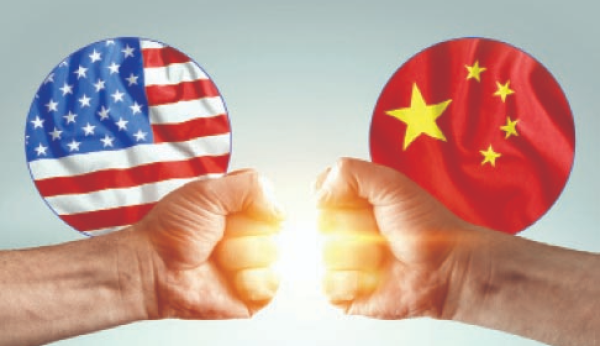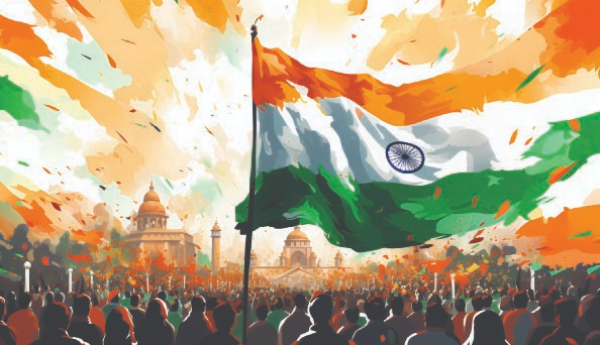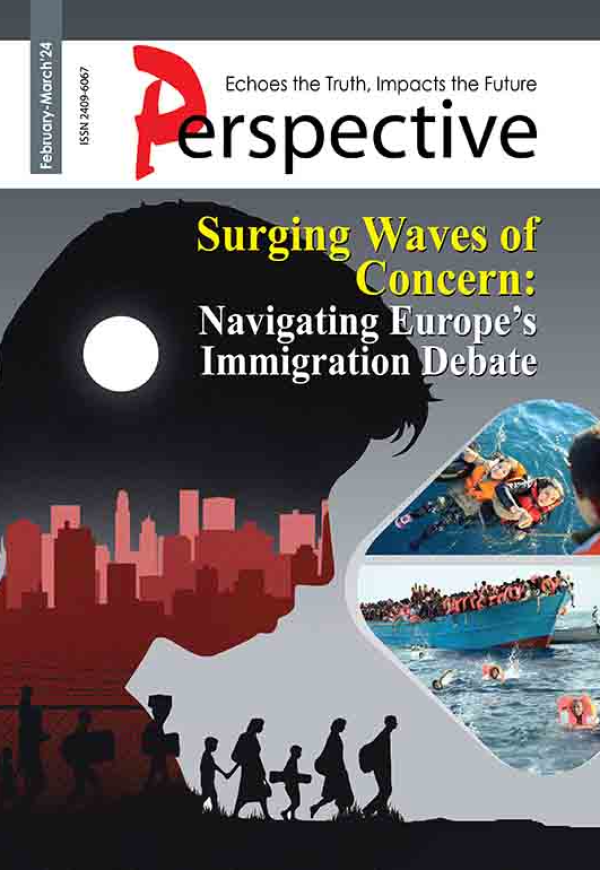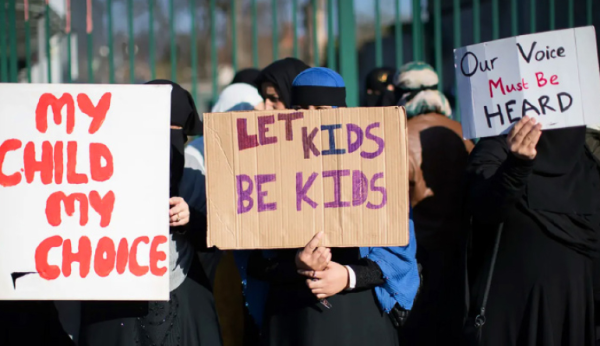Henry Kissinger Uncovered : Peeling Back the Layers of a Diplomatic Enigma
Henry Kissinger Uncovered : Peeling Back the Layers of a Diplomatic Enigma
Henry Kissinger Uncovered : Peeling Back the Layers of a Diplomatic Enigma
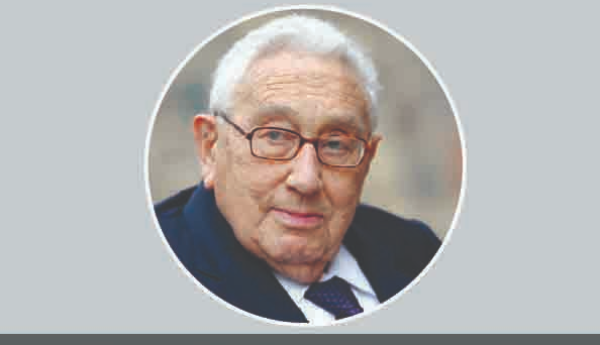
Not only in Bangladesh but also in most of the countries of this subcontinent, we cannot see so many people who reach 100 years old at this time. We must have seen or heard stories of many people who lived to be 100 years in their lifespan. People who are turned to 100 are called ‘centenarians’. Statistics say, “There are ~8100000K people living in the world in this current day.” Compared to the worldwide population, the number of centenarians is very insignificant. According to the World Economic Forum (WEF), “the number of centenarians worldwide was approximately 573k in 2021.” Among the countries, the US is home to 97K centenarians, the highest absolute number in the world. Definitely, being one of 97,000 people in a country of 340,000 people is a matter of fortune. Henry Kissinger is one of the luckiest people in that sense. Also, he is not only a lucky person in terms of age but also in terms of finances. This Jew, who once came to the United States as a refugee from Germany, was the owner of a net worth of $50 million at the time of his death, according to the website of the Celebrity Net Worth.
Kissinger reached a personal milestone: his 100th birthday on May 27, 2023. As such, his date of birth is May 27, 1923. Various events were held in the elite society of America to celebrate his 100 years of age. He died on November 29, 2023. In this, the question has also arisen in a soft voice: how will world political history remember Henry Kissinger? Should America be proud of Henry Kissinger? Especially when there is credible evidence against him of many wrongdoings in many countries!
The Guardian has made a comment about Kissinger in one of its opinion articles: “But in the United States, Kissinger is untouchable. One of the 20th century’s most prolific butchers is beloved by the rich and powerful, regardless of their partisan affiliation. Kissinger’s bipartisan appeal is straightforward: He was a top strategist of America’s empire of capital at a critical moment in that empire’s development.”
Although he began his career as an intellectual, researcher, and professor, Kissinger’s reputation was primarily as a diplomat. From September 23, 1973, to January 20, 1977, he was the Secretary of State for about 40 months. With his appointment, he became the first person ever to serve as both Secretary of State and National Security Adviser, a position he had held since President Nixon was sworn into office on January 20, 1969. However, on November 3, 1975, President Gerald R. Ford removed him from his National Security Adviser position while keeping him as Secretary of State. He was a member of the Foreign Intelligence Advisory Board from 1984 to 1990. From 2001 to 2020, he was a member of the Board on Defence Policy for two decades. All such responsibilities have been part of his diplomatic life for almost 50 years. Even so, he was serving actively as president of Kissinger Associates and as a consultant to dozens of other organisations until his death.
Like a coin, Henry has both sides—some pay tribute to him as a global policymaker, while others treat him as a war criminal. He earned respect for his work in building diplomatic relations between the US and China. He was also able to do so for the United States in relation to the Soviet Union.
In 1971, Kissinger made two trips to the People’s Republic of China. One of them was in July (a secret trip), and another one was in October [6]. On his first trip, he and the PRC discussed the Taiwan issue. China demanded to pull U.S. forces out of Taiwan and end military support, as the United States recognised that Taiwan was a legitimate part of the PRC. Kissinger ended that trip by promising to pull U.S. forces out of Taiwan; two-thirds would be pulled out when the Vietnam War ended, and the rest would be pulled out as Sino-American relations improved. The Chinese government deserved to be represented in the United Nations, which came up again in October 1971 during his second trip to Beijing.
Kissinger told Zhou (the First Premier of the PRC) that a majority of Americans favoured Taiwan’s continued membership in the UN, proposing the possibility of a “two Chinas” compromise to align with American public sentiment. Zhou firmly asserted that the People’s Republic was the rightful government of all of China, rejecting any compromise on the Taiwan issue. Kissinger, acknowledging Chiang Kai-shek’s (former PRC President) historical alliance with the U.S. during World War II, emphasised the difficulty of completely severing ties with him. Additionally, Kissinger expressed reservations about George H.W. Bush’s representation of the U.S. at the UN, describing him as “too soft and not sophisticated.” Despite the UN General Assembly’s decision to expel Taiwan and transfer China’s seat on the UN Security Council to the People’s Republic, Kissinger showed no outward displeasure. Kissinger’s diplomatic missions set the stage for the historic 1972 summit involving Nixon, Zhou, and Chinese Communist Party Chairman Mao Zedong, marking the initiation of formalised relations between the United States and China. This concluded a period of 23 years characterised by diplomatic isolation and mutual animosity. Ultimately, full normalisation of relations with the People’s Republic of China was achieved in 1979.
Additionally, there was a policy of détente, signifying the easing of tensions with the Soviet Union. Kissinger and Nixon’s strong rapport, which contributed to Kissinger’s influential role, organised the dynamics between the two superpowers of that time. This framework facilitated discussions on nuclear arms control, the establishment of guidelines for handling conflicts involving their respective allies, and regular summit meetings. These efforts collectively played a crucial role in preventing the Cold War from escalating into hot conflicts or, more critically, leading to nuclear escalation.
However, his polarising policies in the United States and his support for anti-communist dictatorships, particularly in Latin America, made him a divisive figure. Kissinger played a role in extending the duration of the Vietnam War, expanding the conflict into the neutral territory of Cambodia, and being associated with genocidal events in Cambodia, East Timor, and Bangladesh. His actions also contributed to the acceleration of civil wars in southern Africa, and he provided support for coups and death squads across Latin America. The Yale University historian Greg Grandin, author of the biography Kissinger’s Shadow, estimates that Kissinger’s actions from 1969 through 1976, a period of eight brief years when Kissinger made Richard Nixon’s and then Gerald Ford’s foreign policy as national security adviser and secretary of state, meant the end of between three and four million people. The Vietnam War (1955–1975) was extended to more than four years due to his policy. The prolonged war cost the lives of millions of Vietnamese, Cambodians, and Laotians. North Vietnam and its revolutionary allies in South Vietnam would topple the U.S.-backed government in Saigon in 1975. That same year, due in large part to Nixon and Kissinger’s expansion of the war into the tiny, neutral nation of Cambodia, the American-backed military regime there fell to the genocidal Khmer Rouge, whose campaign of overwork, torture, and murder then killed 2 million people, roughly 20 percent of the population. American journalists Christopher H., Samantha Power, and others have made old claims that 3,875 bombs were dropped in the Cambodia campaign with Kissinger’s direct approval. Kissinger’s notoriety was not limited to Vietnam and Cambodia. He caused the biggest accident in Chile. In 1970, Salvador Allende, who openly identified as a Marxist, was democratically elected to serve as the president of Chile. Over the ensuing three years, the US invested millions of dollars into fomenting a coup under the approval of Nixon and Kissinger. In 1973, he helped General Augusto Pinochet come to power in a military coup, and the elected government of Allende was thrown out to protect US interests. During Pinochet’s 17-year-long rule, more than 3,000 people were disappeared or killed, and tens of thousands of opponents were imprisoned. More than 30 years after Pinochet was finally forced out of office, Chile is still grappling with the former dictator’s US-enabled legacy. In 2014, a large number of documents were released, detailing Kissinger’s enthusiasm for Argentina’s ‘dirty war’. He was there, urging Foreign Minister Cesare Augusto Guzzetti to ‘quickly clean up the problems’. In 1975, after his visit to Jakarta, President Suharto, a brutal dictator, moved in with his US-equipped army, killing 200,000 East Timorese. He only backed this because of his anti-communism. Kissinger’s support for Pakistan’s ruling group during the Bangladesh War was quite open. He also consented to the 1976 assassination of right-wing generals in Argentina by the leftists. About 10k people died and 30k opponents disappeared during the military’s rule under dictator Jorge Rafael Videla, which lasted until 1983. Moreover, let’s take Kissinger’s Nobel Prize. This is perhaps the most controversial and condemned announcement in the history of the Nobel Prize. The man who, together with President Nixon, was destroying Vietnam was awarded the Peace Prize in 1973, shocking the world.
Kissinger shared the award with Lee Duc Tho of North Vietnam. Even after this ‘Peace Prize’ was announced, it took two years for the Vietnam War to end. It was embarrassing for Kissinger, while another recipient of the award, Lee Tho, refused to accept it. Later, after the release of old documents from the Nobel Committee, Kissinger himself wanted to return the award after the war in May 1975, in the face of widespread criticism. The Nobel Committee did not agree.
Kissinger’s theory as a policymaker to ‘put the United States ahead on the world stage’ is that Washington must ‘sometimes ignore moral and ideological considerations’ to do so.
The author of this article is pursuing his PhD Degree at the Department of Psychology, University of Otago, New Zealand
Reference:
1. Worldometers statistics on 30 Nov 2023
2. The World Economic Forum, living-to-one-hundred-life-expectancy
3. Henry Kissinger turns 100 this week. He should be ashamed to be seen in public by Bhaskar Sunkara and Jonah Walters. The Guardian. 27th May 2023
4. https://www.celebritynetworth.com/richest-politicians/henry-kissinger-net-worth/
5. Department of the state, Office of the Historian. The United States of America.
6. Dube, Clayton. “Getting to Beijing: Henry Kissinger’s Secret 1971 Trip”. USC U.S.–China Institute. Archived from the original on November 10, 2013. Retrieved July 21, 2011.
7. Bernkopf Tucker, Nancy (June 2005). “Taiwan Expendable? Nixon and Kissinger Go to China”. The Journal of American History. 92 (1): 109–135. doi:10.2307/3660527. JSTOR 3660527.
8. Kim, Hong N.; Hammersmith, Jack L. (Spring 1986). “U.S.-China Relations in the Post-Normalization Era, 1979–1985”. Pacific Affairs. 59 (1): 69–91. doi:10.2307/2759004. JSTOR 2759004.
9. The Legacy of Henry Kissinger by Richard Haass. Originally published at Project Syndicate. Published on November 30, 2023
10. Grandin G. Kissinger’s Shadow: The long reach of America’s most controversial statesman. Macmillan; 2015 Aug 25.
11. Henry Kissinger: 10 conflicts, countries that define a blood-stained legacy by Al Jazeera and Agencies. Published on 30 November 2023.
12. HENRY KISSINGER, TOP U.S. DIPLOMAT RESPONSIBLE FOR MILLIONS OF DEATHS, DIES AT 100 by Nike Turse. Published in The Intecept on November 29, 2023.
13. Burr, William; Evans, Michael L., eds. (December 6, 2001). “Ford, Kissinger and the Indonesian Invasion, 1975–76”. National Security Archive. Archived from the original on February 14, 2016. Retrieved February 13, 2016. Ford and Kissinger Gave Green Light to Indonesia’s Invasion of East Timor, 1975: New Documents Detail Conversations with Suharto
14. “Dissent from US Policy towards East Pakistan”
15. Kissinger approved Argentinian ‘dirty war’ by Duncan Campbell. Published by The Guardian on 6 December 2023.
16. “The Nobel Peace Prize 1973”. Nobel Foundation.
 Mamun Mia
Mamun Mia 


